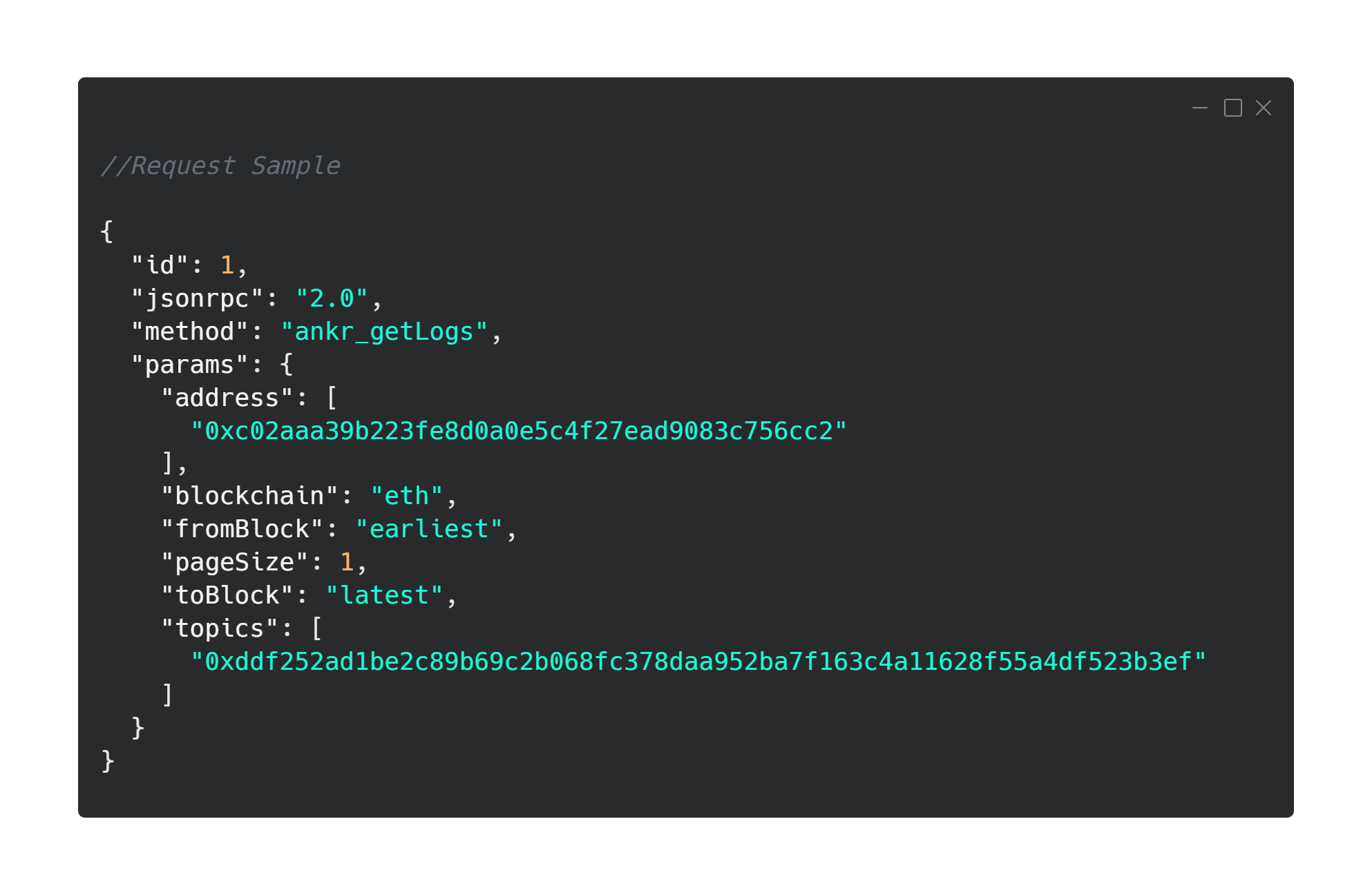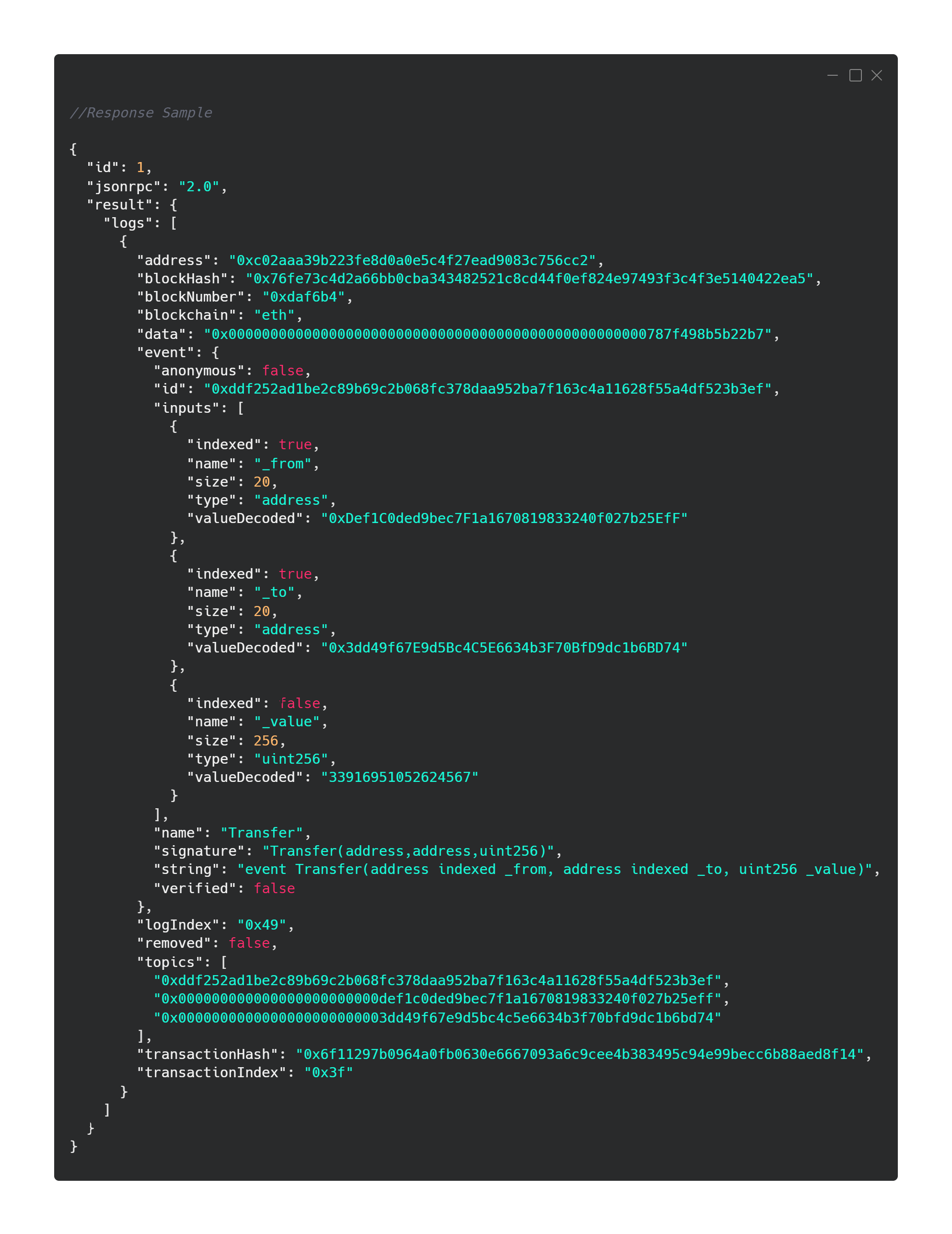Query Log Entries 100x Faster with ankr_getLogs

Krinza Momin
January 27, 2023
3 min read
As a web3 developer working on Ethereum blockchain, you've likely come across the problem of trying to retrieve historical data. Traditional methods involve manually scanning through blocks and transactions, which can be slow and tedious. Imagine having to sift through thousands of blocks and interactions just to find the information you need. Yet alone, multiple blockchains!
While eth_getLogs can be an option for devs to make sense of the blockchain data on Ethereum, what if there was a way to easily and quickly retrieve log entries that match specific filter criteria across eight different blockchains? This is where ankr_getLogs comes in.
Releasing ankr_getLogs
As a developer, you need efficient and accurate ways of retrieving historical data to make informed decisions and implement your business logic. ankr_getLogs offers a solution to this problem by providing an easy and fast way to access historical data on the Ethereum blockchain and seven other chains, including:
- Polygon
- BSC
- Fantom
- Avalanche
- Syscoin
- Optimism
- and Arbitrum
Getting the Most Out of ankr_getLogs?
ankr_getLogs is a JSON-RPC method that allows for the retrieval of log entries that match specific filter criteria. It makes it possible for you to retrieve log entries with ease and speed.
Log entries are a way for smart contracts to record events that have occurred on the blockchain. When a contract emits an event, it creates a log entry that contains information about the event. This can include things like the contract address, the event name, and any indexed parameters. Log entries are important because they provide a way for external parties to track what is happening within a contract and to respond to events that occur.
Retrieving Event Logs
With ankr_getLogs, the method takes parameter, a filter object that defines the criteria for the log entries to be returned. This filter object can include properties such as the address of the contract, the topics of the event, and the block range in which the log entries were generated.

Decoding the ankr_getLogs Response: Understanding the Data Returned
The ankr_getLogs method returns an array of log entries that match the filter criteria. Each log entry is represented as an object with properties such as transactionHash, blockNumber, logIndex, address, data, and topics. Understanding these properties and how to interpret the data they contain is crucial for making the most out of the ankr_getLogs method.

The transactionHash property contains the transaction's hash that created the log entry. This can be used to look up the transaction and get more information about it. The blockNumber contains the block number in which the log entry was included. This can be used to look up the block and get more information about it. The logIndex property is the index of the log entry within the block.
The address property points to the address of the contract that emitted the event. The data property contains the non-indexed data associated with the event. And the topics are the indexed data associated with the event, which can include the event name and indexed parameters.
Query ankr_getLogs
Now that you have all the necessary tools, you can build and implement the ankr_getLogs method into your projects. The ability to quickly and easily retrieve log entries greatly enhances your project's capabilities and allows you to make more informed decisions.
Don't wait any longer; query ankr_getLogs today!



